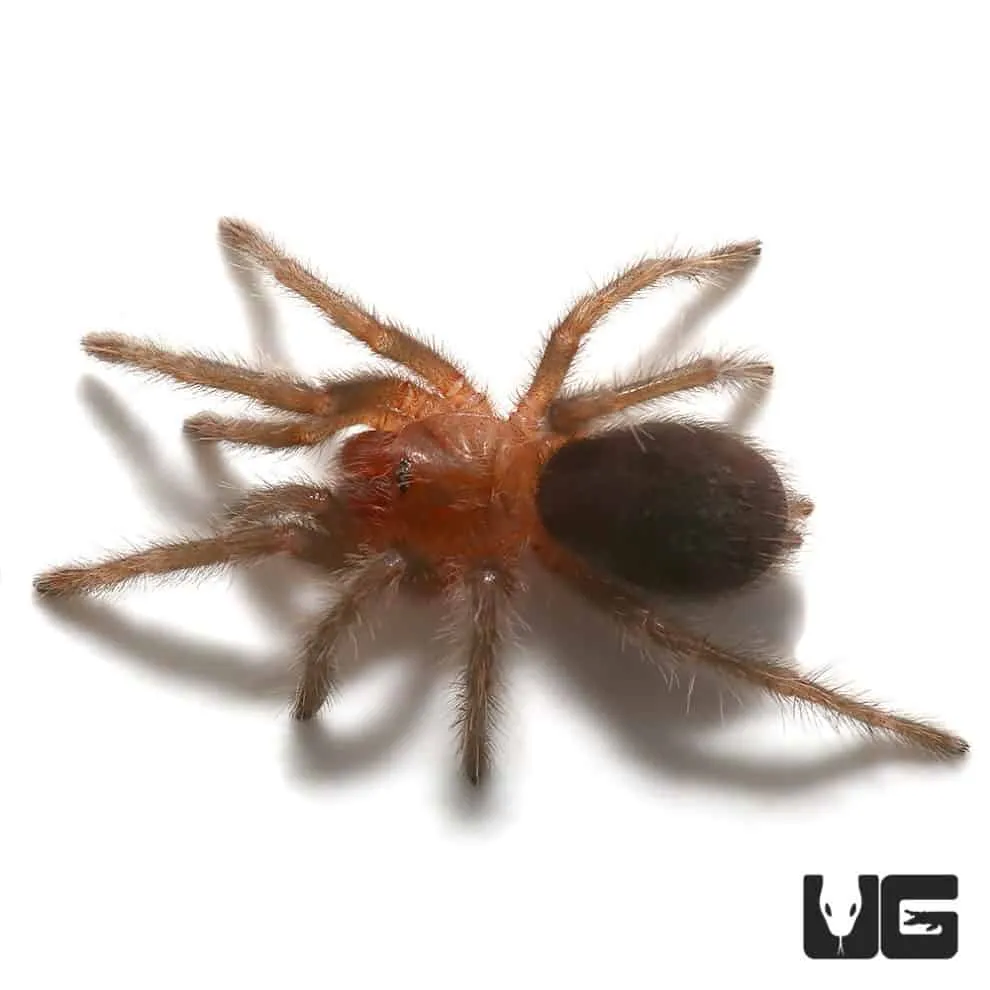What is a Brazilian Black Tarantula?
The Brazilian Black Tarantula, scientifically known as Grammostola pulchra, is a captivating arachnid that has gained popularity among tarantula enthusiasts. Native to the grasslands of Southern Brazil, this species is prized for its striking appearance and relatively docile temperament. Unlike some other tarantula species, the Brazilian Black is known for its calm demeanor, making it a suitable pet for both novice and experienced keepers. Their lifespan can be quite remarkable, with females often living for over 20 years, providing long-term companionship for dedicated owners. Considering the price of a Brazilian Black Tarantula involves understanding these fundamental aspects of the species, including their natural habitat, behavioral traits, and longevity.
Appearance and Characteristics
As their name suggests, Brazilian Black Tarantulas are predominantly black, with a velvety appearance that enhances their allure. They have a robust body structure covered in fine hairs, which give them a soft texture. The adults can grow to a leg span of up to 6-8 inches, making them a substantial presence in any enclosure. Their coloration remains consistent throughout their lives, which adds to their appeal. This species doesn’t have any other vibrant colours like other tarantula species, instead, their deep black color gives them a mysterious beauty that is loved by tarantula keepers. The Brazilian Black Tarantula’s appearance is a primary factor that contributes to its market price, with larger, healthier specimens often commanding higher values.
Lifespan and Temperament
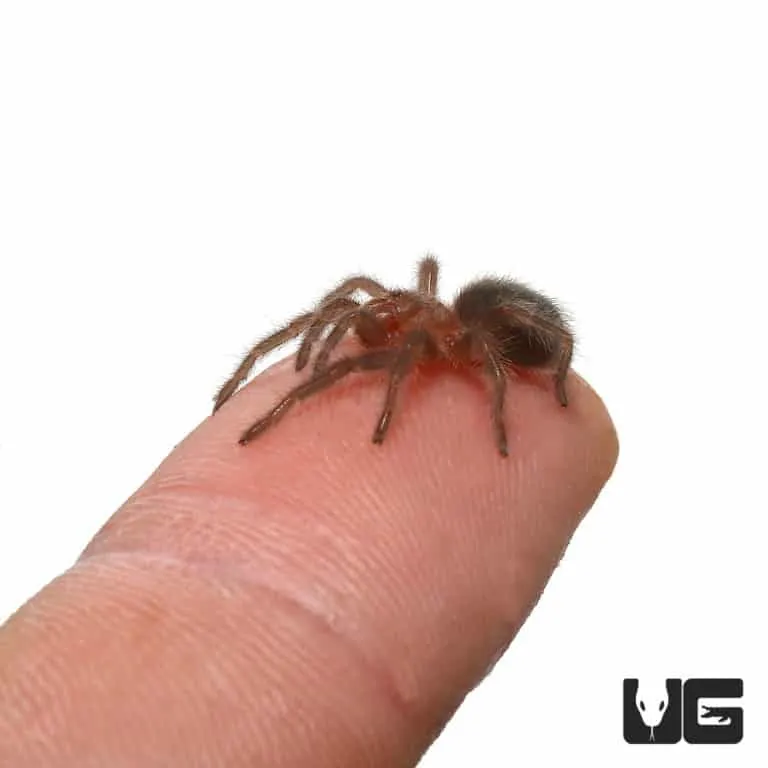
The lifespan of a Brazilian Black Tarantula is a significant factor when considering the price of a Brazilian Black Tarantula. Female Brazilian Blacks can live for an impressive 20-25 years, while males typically have a shorter lifespan, around 5-7 years. This longevity is a key selling point for many buyers, as it represents a long-term commitment and a lasting pet. In terms of temperament, Brazilian Blacks are known for being relatively docile and not highly defensive. They are less likely to flick urticating hairs or bite when compared to some other tarantula species. This makes them a good choice for those new to tarantula keeping. Understanding their lifespan and temperament is essential for providing proper care and managing expectations regarding their behavior and needs.
Factors Influencing Brazilian Black Tarantula Price
Several factors influence the price of a Brazilian Black Tarantula, which can vary widely depending on a variety of factors. These factors affect the market value and help determine the overall cost of acquiring one. Understanding these elements is crucial for making an informed decision and ensuring you get a fair price for your new pet. The price is impacted by factors related to the tarantula itself and also external conditions. By assessing each aspect, potential owners can better prepare their budget and expectations.
Age of the Tarantula
The age of a Brazilian Black Tarantula is a primary determinant of its price. Spiderlings (young tarantulas) are generally less expensive than juveniles or adults. This is because they are more delicate and require more specialized care. As the tarantula grows, its value increases, reflecting its maturity and the time invested in raising it. Adult females, being the longest-lived and capable of reproduction, often command the highest prices. The age also provides an indication of the tarantula’s overall health and development, which is an important consideration.
Size of the Tarantula
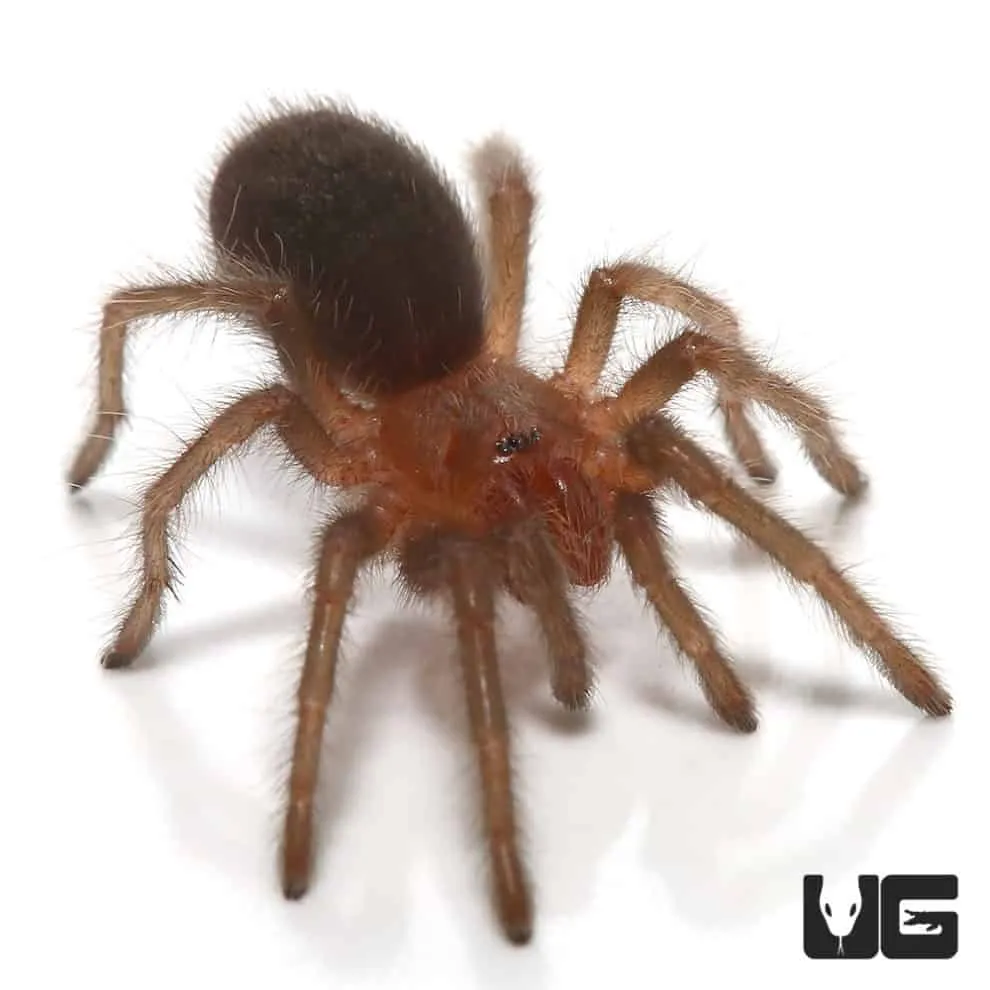
The size of the tarantula is another crucial factor. Larger tarantulas, especially those nearing adulthood, are often priced higher due to the time and resources invested in their growth. The leg span is the primary measurement used to determine size, with larger specimens being more visually impressive and often sought after by collectors. Size also correlates with the tarantula’s maturity level and its overall health. A healthy, well-fed tarantula will typically grow larger, influencing its value.
Morph or Color Variations
While the Brazilian Black Tarantula is known for its consistent black coloration, any unique color variations or morphs can affect the price. These variations are rare and highly sought after by collectors, which can increase the tarantula’s value. Such differences may be related to genetics, and in some cases, may be influenced by environmental factors. The rarity of any specific morph is a key element in determining its market price. Variations add uniqueness to the species and are usually the focus of specialized tarantula hobbyists.
Where You Buy From
The source from which you purchase a Brazilian Black Tarantula significantly impacts the price. Reputable breeders and specialized pet stores typically offer healthier tarantulas and provide more information and support. The cost may be higher compared to buying from a private seller or an unverified online source, but the added assurance of quality and care often justifies the expense. These sellers often have expertise on tarantula care and can provide a better buying experience. They usually have detailed background information and health records about the specific tarantula.
Health and Condition
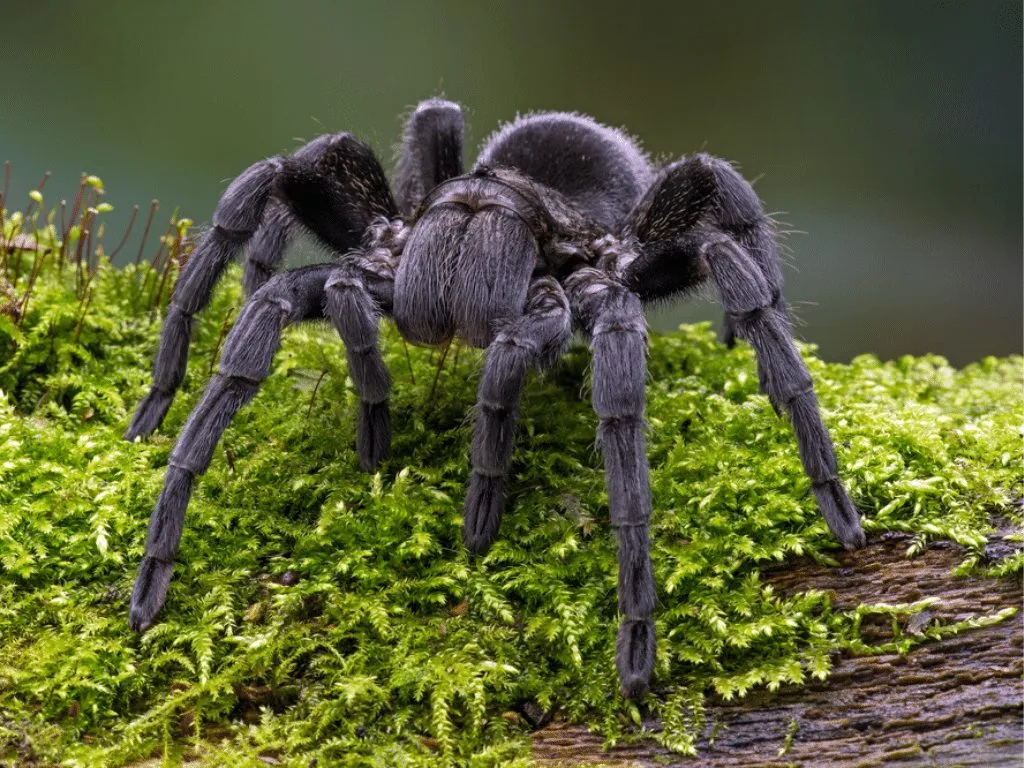
The overall health and condition of the tarantula are of paramount importance. A healthy tarantula with a good appetite, clean appearance, and no signs of illness will command a higher price. Signs of a healthy tarantula include a plump abdomen, clear eyes, and active behavior. Potential buyers should closely examine the tarantula for any signs of parasites, injuries, or other health issues. Buying a healthy tarantula ensures a better start and reduces the risk of expensive veterinary treatments. The health condition is an important price consideration.
The Average Brazilian Black Tarantula Price Range
The price of a Brazilian Black Tarantula varies depending on the factors discussed above. It’s essential to understand the general price range to budget appropriately. Always factor in the specific characteristics and the source of the tarantula. Here is a general price breakdown.
Cost of a Spiderling
Spiderlings, being the youngest, are usually the most affordable option. The price of a Brazilian Black Tarantula spiderling typically ranges from $20 to $40. Spiderlings require a very specific environment, so purchasing these is often the riskiest option.
Cost of a Juvenile
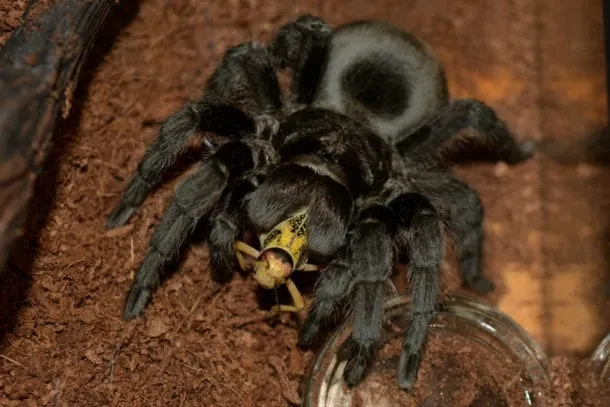
Juvenile Brazilian Black Tarantulas, which are older than spiderlings but not yet fully grown, usually cost between $40 and $80. The cost of a Brazilian Black Tarantula at this stage varies depending on size, health, and the breeder. The risk is lower than spiderlings, and the tarantula is slightly more robust.
Cost of an Adult
Adult Brazilian Black Tarantulas are the most expensive, with prices ranging from $80 to $150 or more, particularly for adult females. This higher price reflects their size, maturity, and the years of care they have received. Adult females, known for their longer lifespans and ability to reproduce, often fetch the highest prices.
Additional Costs to Consider
Beyond the initial purchase price, several additional costs are essential for keeping a Brazilian Black Tarantula. These costs are ongoing and should be factored into your budget to ensure you can properly care for your pet.
Enclosure and Setup
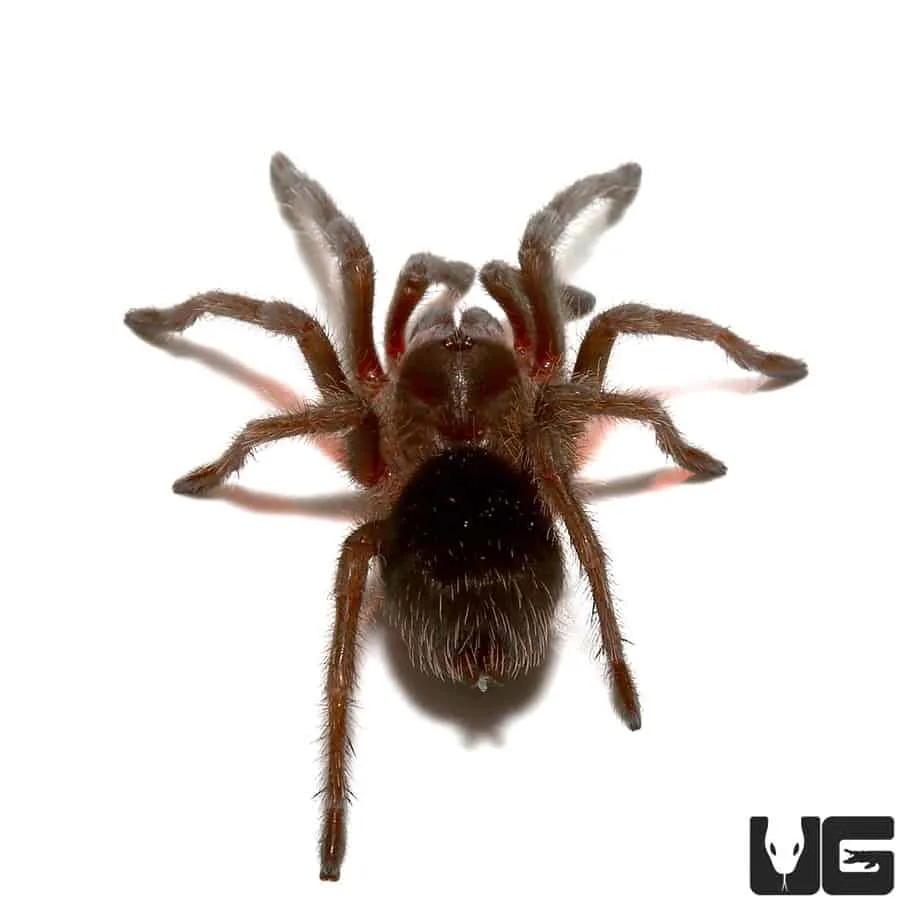
The enclosure is a crucial investment. You’ll need a terrarium with appropriate ventilation, substrate, and hiding places. The cost of a suitable enclosure can range from $30 to $100 or more, depending on the size and material. Additional items include water dishes, decorations, and heating or lighting equipment. The right enclosure helps maintain the correct environmental conditions.
Food and Feeding
Brazilian Black Tarantulas eat insects, such as crickets, mealworms, and roaches. The cost of these feeder insects can vary, with crickets costing around $0.10 to $0.25 each. The feeding frequency depends on the tarantula’s age and size. Regularly supplying fresh food is essential for their health and well-being. Proper nutrition ensures the tarantula lives a long, healthy life.
Ongoing Care and Maintenance
Ongoing costs include substrate replacement, which should be done every few months, costing around $10 to $20. Regular cleaning and maintenance are crucial for keeping the enclosure healthy. Additional costs may arise from veterinary care if your tarantula becomes ill or injured. Maintaining a suitable environment and routine care protects the health of your tarantula.
Tips for Finding a Brazilian Black Tarantula
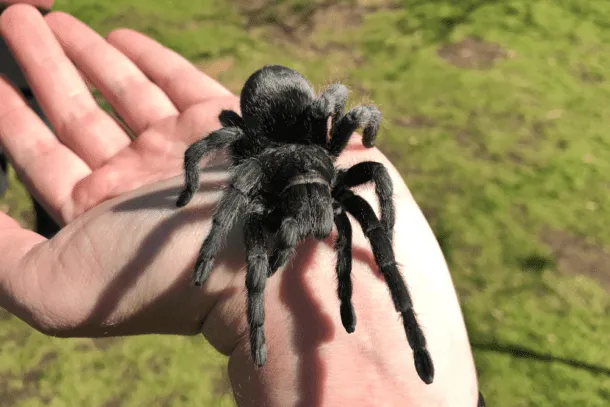
Acquiring a Brazilian Black Tarantula requires careful research and planning. Following these steps helps you find a healthy tarantula at a fair price.
Research Reputable Breeders and Sellers
Before purchasing, thoroughly research breeders and sellers. Look for reviews, testimonials, and a history of responsible practices. Reputable sources prioritize the health and well-being of their tarantulas, providing quality specimens and after-sale support. Check for certification and experience within the field.
Compare Prices and Conditions
Compare prices from different sources, but do not let price be the only determining factor. Consider the overall condition, size, and health of the tarantula. A slightly higher price from a reputable seller may be worth it to ensure a healthy pet. Check the tarantula carefully before making a purchase, looking for signs of health.
Ask About the Tarantula’s History
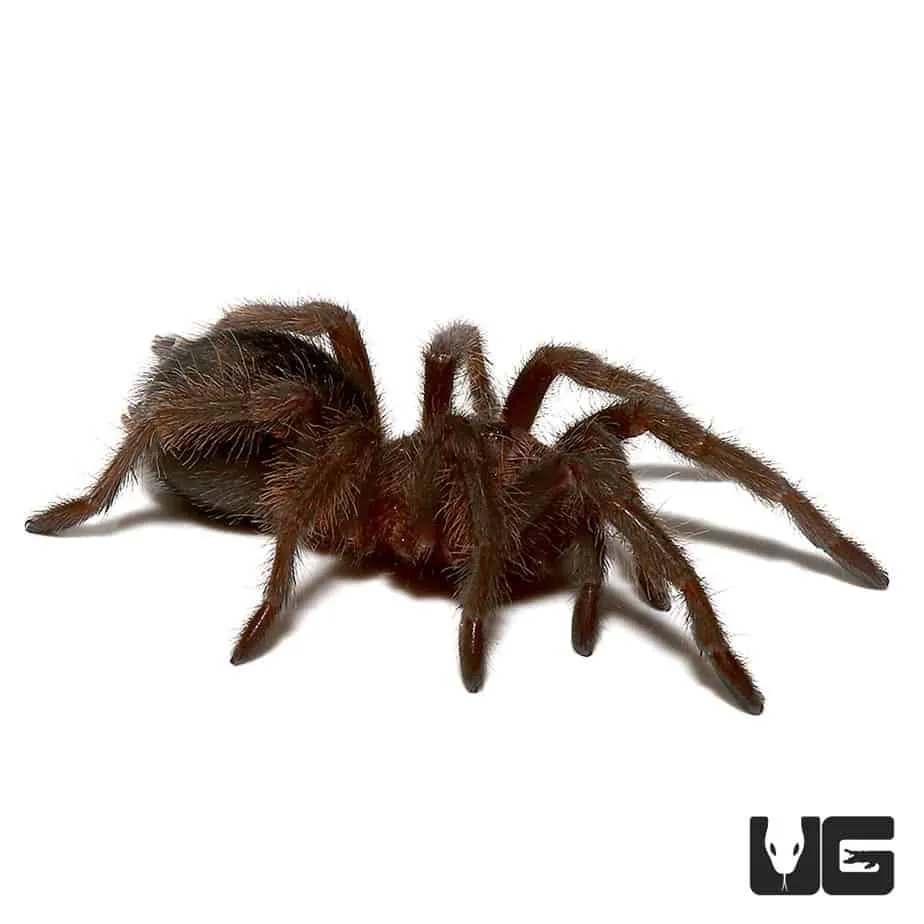
Ask about the tarantula’s history, including its age, origin, and any known health issues. A reputable seller will be transparent and provide detailed information. This information helps you understand the tarantula’s background and helps to anticipate any future needs. Get as much information as possible before committing to a purchase.
Common Mistakes to Avoid
Avoiding common mistakes can help you make a successful purchase. Being aware of these pitfalls will help you avoid common issues.
Impulse Buying
Avoid impulse buying. Always research and plan before acquiring a tarantula. Make sure you understand the commitment, the care requirements, and the associated costs. Rushing into a purchase can lead to disappointment and potential problems with the tarantula’s health. Take your time and carefully consider your decision.
Neglecting Research
Thoroughly research the Brazilian Black Tarantula and its care requirements before purchasing one. Understand its specific needs regarding enclosure, humidity, temperature, and diet. Failing to research can lead to improper care and health problems. Ensure you have the knowledge to provide a suitable environment.
Ignoring Health Signs
Pay close attention to the health and condition of the tarantula before purchasing. Avoid buying a tarantula that appears lethargic, has a shrunken abdomen, or shows signs of parasites or injuries. Ignoring these signs can result in significant expenses and heartbreak down the line. A healthy tarantula is a sign of a good start.
Conclusion
Understanding the price of a Brazilian Black Tarantula involves considering various factors, from the tarantula’s age and size to the source you purchase from and the associated care costs. By conducting thorough research, comparing prices, and avoiding common mistakes, you can make an informed decision and bring home a healthy and captivating pet. Remember that owning a tarantula is a long-term commitment. With proper care and understanding, you can enjoy the companionship of this fascinating species for many years to come. Always prioritize the health and well-being of the tarantula. A well-cared-for tarantula is a rewarding pet.
